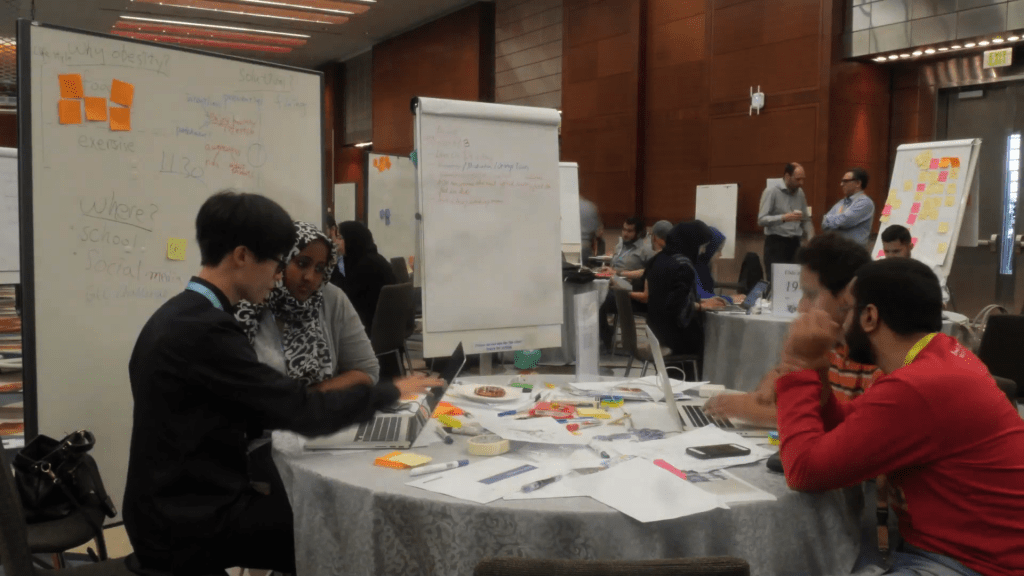It’s not a scene you’d expect on a Friday at 8 am: students filling up a university conference room, giving up their last weekend before finals.
They’re all inextricably tied to a problem they don’t know yet. But somehow it merges all together: mix 130 or so students together in groups, hand them world issues to fix.
The team that pitches the best solution wins. They’ve got 48 hours to do it, five minutes to present.
The competition is named STEAM, a conglomeration of Science, Technology, Engineering, Arts and Mathematics. For the first time in The Kingdom, five Saudi universities are coming together to beta test the ideation challenge.
“We all know diversity is important for innovation,” says Abdulrahman Jiffry from the KAUST Entrepreneurship Center. “It’s gonna be youth, energy and enthusiasm all put in the pressure cooker of unfamiliarity.”
Over the span of two days, groups cluster together as if they’re competing in a smart-off reality show. They plot, prep, and power lunch together to merge collective brain power over one of three issues: water, urban development and food.
“Don’t be discouraged if this isn’t your field” booms the man at center stage, Gordon McConnell. The group he heads at the Entrepreneurship Center teamed up with Spring Enrichment Programs (SEP) and student group eBIG to pull this off. The whole operation is in partnership with Islamic Development Bank.
“This is an experiment. We have no idea what we’re gonna come up with. That’s the fun of ideation,” says McConnell.
But they have prepared for it. The schedule is chock full of ‘breakout sessions’ and ‘sanity checks.’ The tables are loaded with energy drinks and brown bag lunches.
As the night crawls on, notepads are filled and laptops translate the group’s inner workings into the beginnings of a presentation. The experiment is working.
Day 2: The Final Pitch
In the morning, the pop sound of silver cans and drip espresso are still fresh.
As the tables get down to business, the room starts to swirl with innovation. It’s the type of brainstorming power funneled in a command center, fueled by copious amounts of caffeine.
A half an hour until pitch time, and the relative calm has spread into a fierce presentation scramble.
The judges, a myriad of KAUST faculty and experts from Islamic Development Bank, will split up to hear all the pitches. They whittle down to finals from three different categories. The winning team gets $10,000 USD, but it’s about more than just the money.
“Seeing young unfamiliar faces coalesce into a team in 2 days, come up with mind-blowing solutions that are very simple, very obvious, yet practical,” says Abdulrahman, on what makes this experience memorable.
At the finals, the winning team pitches an app to help Syrian refugees. The event ends with newfound friendships built on the bond that powering together through chaos can bring.
Just looking around makes light of why it’s so appealing to be here. Flexing the infinite possibilities of art and science into the most gratifying objective: saving the world. In two words: Superhero science.

